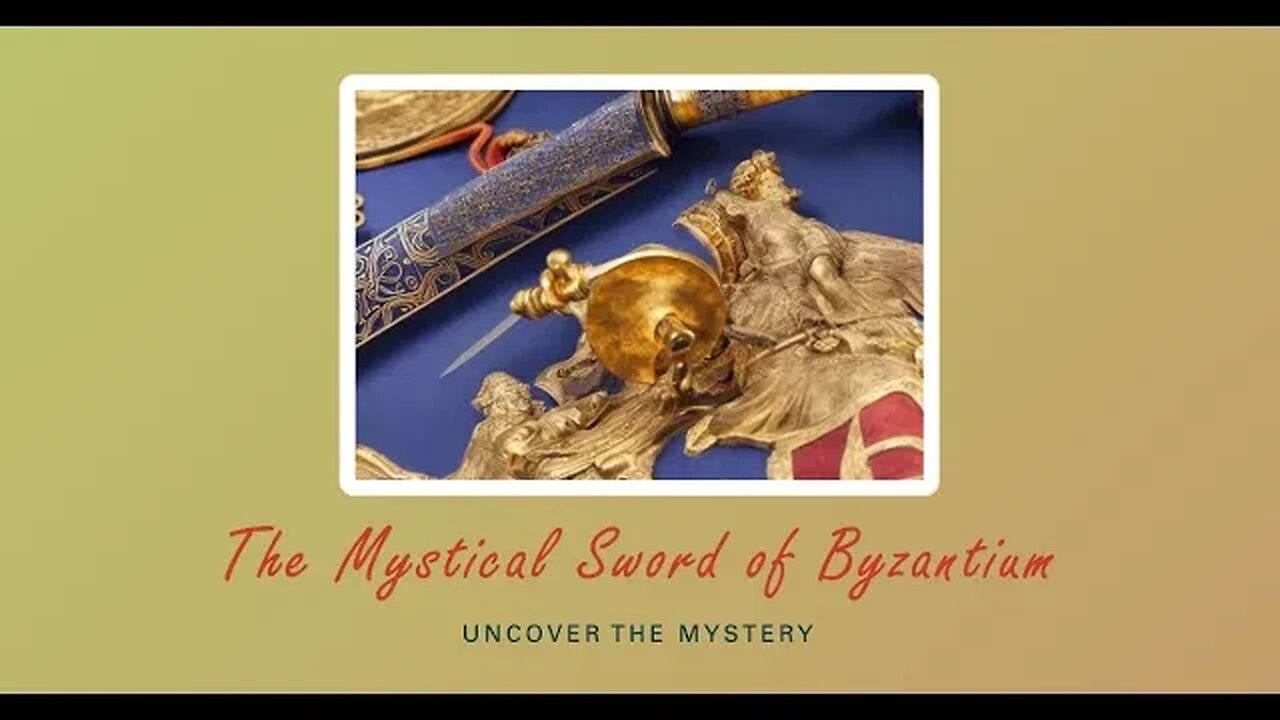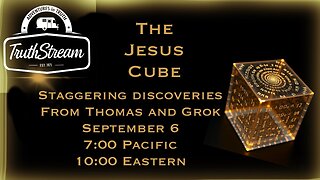Premium Only Content

The Mystical Sword of Byzantium #Byzantium #SwordofByzantium #MedievalHistory #AncientWeapons
#Past, #Heritage, #Tradition, #Ancestry, #Legacy, #Culture, #Civilization, #Chronicle, #Timeless, #Antiquity, #Annals, #Memorabilia, #Remembrance, #Yesterday, #Retrospect, #Nostalgia, #Archeology, #Historic, #Historicity, #Mythology, #Folklore, #Historiography, #Paleontology, #Epitaphs, #Lineage, #Roots, #Genealogy, #Museums, #Monuments#Byzantium #SwordofByzantium #MedievalHistory #AncientWeapons #HistoricalArtifacts #MysticalSword #AncientEmpire #LegendaryWeapon #Antiquities #MedievalWeaponry #MythsandLegends #TheCrusades #ByzantineEmpire #LostArtifacts #AncientTreasures #HistoricalEnigma #SwordsofLegends #TheHolyRomanEmpire #EnchantedWeapons #ByzantineHistory
The Mystical Sword of Byzantium #Byzantium #SwordofByzantium #MedievalHistory #AncientWeapons
In this video, we delve into the fascinating history of the Byzantine sword, a unique and mystical weapon that played a pivotal role in the empire’s military might. From its origins to the different types and styles that emerged, we explore every aspect of this incredible sword. You’ll learn about the intricate craftsmanship involved in creating these swords, as well as the materials that were used. We’ll also take a closer look at some of the most famous Byzantine swords in history, and the incredible stories behind them. Whether you’re a sword enthusiast, a history buff, or just someone looking to learn more about this incredible weapon, this video has something for everyone. So sit back, relax, and join us as we journey through the history of "The Mystical Sword of Byzantium."
History is a broad term that refers to the study and interpretation of past events and their significance to the present day. It encompasses the actions, beliefs, and experiences of human beings throughout time, as well as the physical artifacts and records that document these events. The study of history helps us to understand how the world we live in today has been shaped by past events and how we can learn from them.
The importance of history cannot be overstated. By examining past events, we can learn from the successes and failures of those who came before us, and apply this knowledge to our own lives and society. It helps us to understand the roots of current political, economic, social, and cultural issues and how they have evolved over time. History can also help us to appreciate the diversity of human experience and the many ways in which people have interacted with one another throughout history.
One of the key methods used in the study of history is the interpretation of primary sources. These can include written records, such as letters, diaries, and official documents, as well as physical artifacts like artwork, tools, and architecture. By examining these sources and analyzing them in context, historians can gain insights into the beliefs, values, and motivations of past peoples and societies. This can help us to understand the complexities of human behavior and decision-making, as well as the impact of larger social, economic, and political forces.
Another important aspect of the study of history is the consideration of multiple perspectives. This involves taking into account the viewpoints of different groups of people, such as women, minorities, and those who have been historically marginalized or excluded from mainstream narratives. By doing so, historians can gain a more complete picture of past events and the ways in which they have affected different communities.
In addition to its academic importance, history also plays a crucial role in shaping our collective memory and identity as a society. By remembering and commemorating important events and figures from the past, we can create a shared sense of history and belonging. This can help us to build stronger communities and foster greater empathy and understanding between different groups of people.
Overall, the study of history is essential for understanding ourselves, our world, and our place in it. Through careful analysis of past events and sources, we can gain insights into the complexities of human behavior and decision-making, appreciate the diversity of human experience, and learn from the successes and failures of those who came before us.
-
 22:05
22:05
A Small Part of History
3 months ago $0.07 earnedThe Final Days of Adolf Hitler: Inside the Führerbunker and the Collapse of Nazi Germany
881 -
 1:38:47
1:38:47
Badlands Media
1 day agoDevolution Power Hour Ep. 387: Trump, Epstein, Durham Mysteries, and North Korea Ops
98.9K26 -
 1:05:23
1:05:23
Man in America
18 hours agoSoaring Gold Exposes the Imminent Crash of the Old System w/ John Perez
56.3K10 -
 2:42:40
2:42:40
TruthStream with Joe and Scott
18 hours agoTHOMAS AND GROK: AI, Bible decodes, The JESUS Cube live 9/6 #487
44.7K10 -
 2:34:46
2:34:46
BlackDiamondGunsandGear
12 hours agoGet Prepped / After Hours Armory / LIVE SHOW /
29.5K2 -
 2:01:39
2:01:39
Tundra Tactical
11 hours ago $11.04 earned🛑LIVE NOW!! This spits in the face of the Second Amendment.🛑
37.5K8 -
 2:34:46
2:34:46
DLDAfterDark
10 hours ago $4.63 earnedIt's SHTF! Do You Have What You Need?? Let's Review Items & Priorities
26.5K6 -
 28:58
28:58
Stephen Gardner
11 hours ago🚨Explosive allegations: Rosie O’Donnell connects Trump to Epstein scandal!?
43.7K84 -
 9:22:47
9:22:47
SavageJayGatsby
2 days agoSpicy Saturday | Let's Play: Grounded
53.2K2 -
 2:06:27
2:06:27
MattMorseTV
12 hours ago $54.65 earned🔴Vance just went SCORCHED EARTH.🔴
133K196